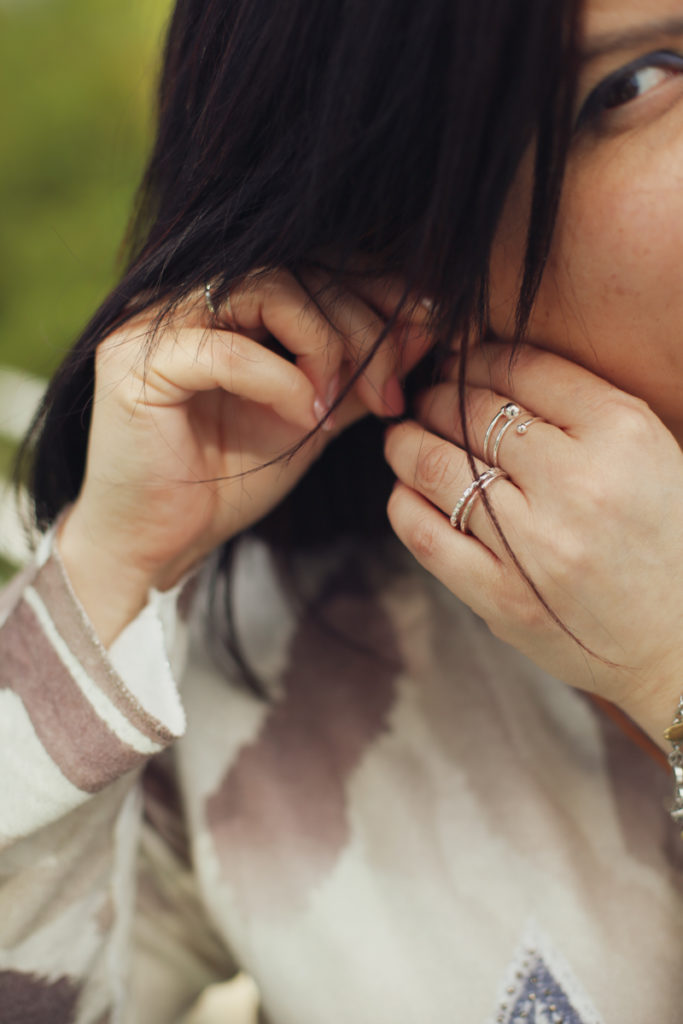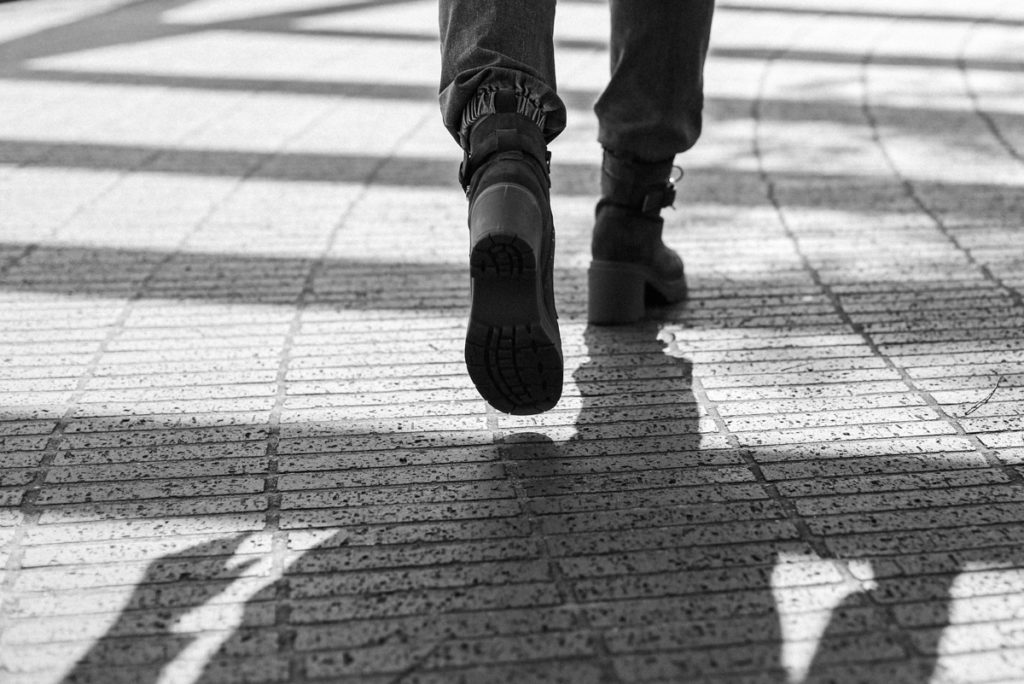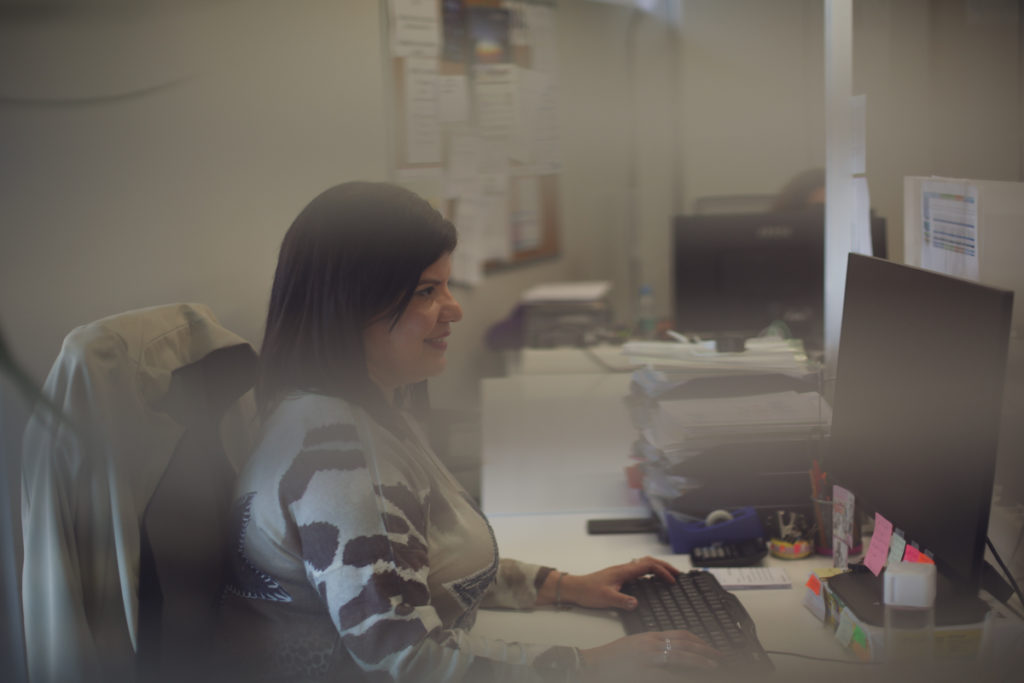“I remember that in the bedroom there were two bunk beds, and I placed the mattress on the floor between my two children, nine and seven, holding their hands because my daughter, cried every day. My son barely ate because he felt anxious and worried about everything that was happening.”
I am Mila Parra, I am 41 years old and I arrived in Spain with my children, aged 9 and 7 years old, and my husband at the end of May 2022. I am from Venezuela. Venezuela is going through a humanitarian crisis. While there, we spent long hours daily without electricity, and other basic supplies like access to clean water, home heating, and gasoline. Venezuelans live under high levels of insecurity, there’s rampant corruption, hospitals lack medical supplies, schools are in decay, and the minimum wage is insufficient for living.

“I kept telling myself ‘I don’t want my children to think this is normal’”
We left in search of a better quality of life for my children, as well as to ensure my health—since I was diagnosed with a potential thyroid cancer after a neck surgery. But it was not an easy decision to leave everything behind and start over somewhere new.
I was a lawyer in Venezuela, an insurance agent, and I also worked informally to earn extra income; I would be selling bread from my parents’ bakery, or braiding little girls’ hair. Of course, I was also a full-time mother and housewife.
Shortly after arriving in Málaga, we arrived at the Nueva Vida Church, where they welcomed us with love, and gave us clothes and food. After five months in Málaga, CEAR (Comisión Española de Ayuda al Refugiado) informed us that we were moving to the next phase of the program and being transferred to Santander. We had three days to pack everything and move.
On arrival in Santander, where we were welcomed by the NGO Movimiento por la Paz, my children were enrolled in the local school and were made feel very welcome by the principal. My husband and I started to look for work.

“I try to learn something new every day, keeping my dreamer spirit alive”
When searching for work, all of the expectations I had about arriving in a “first-world” country fell apart as I faced a harsh and unsympathetic reality. Initially, as an asylum seeker, I had to wait six months after receiving my Foreigner Identification Number (NIE) before I could work.
Even after that long wait, I went to an employment office appointment where the official, without any sensitivity, told me that since I didn’t have my qualifications recognized, I would have to register as an uneducated woman. The only jobs I could apply for were housekeeping or caring for the elderly. According to her, administrative work would be impossible, and that was how it was recorded. This situation filled me with indignation and sadness because I knew my skills.
My husband struggled to find work, too. I started working before him, leaving him to take care of tasks such as taking the kids to school. This change in roles between my partner and me was also a significant source of anxiety and put immense stress on our marriage. Coming from a culture where there is no shared responsibility at home, and the man’s role is limited to providing financially, he was now in a new country where the opposite was expected. This was a tough cultural shock for him. This caused resentment, jealousy, and frustration on his part towards me and unfortunately our marriage did not withstand the challenges.
“My heart is full of gratitude towards the Nueva Vida management for trusting me and giving me the opportunity to work with them.
I currently work as an accounting technician at Asociación Nueva Vida, where I have been working for 1 year and 8 months. I feel fortunate and blessed to belong to this organisation.

By reducing the waiting time for granting work permits, there could be more successful inclusion stories like mine. Host countries should be taking better advantage of foreign talent and skills, not limiting it only to recognized qualifications but allowing integration into the labor market without so much bureaucracy.
When arriving in a new country, a migrant’s desire is to work decently to provide a better quality of life for their children, rather than considering returning because their situation is worse than it was in their home country.
I work daily on strengthening my self-love and recognising my achievements with pride. I teach my children how great it feels to enjoy life by loving and respecting ourselves. Seeing my children grow up happy, healthy, and beautiful reaffirms that it was a good decision to migrate.
“Mom, now we really feel at home.”
Hearing this gave me an incredible sense of peace and satisfaction because, finally, I could let go of all the guilt and fear I had been carrying on my back. I cried tears of joy receiving my Spanish residency card. I work daily on strengthening my self-love and recognising my achievements with pride, focusing on the day-to-day and taking things one step at a time.

